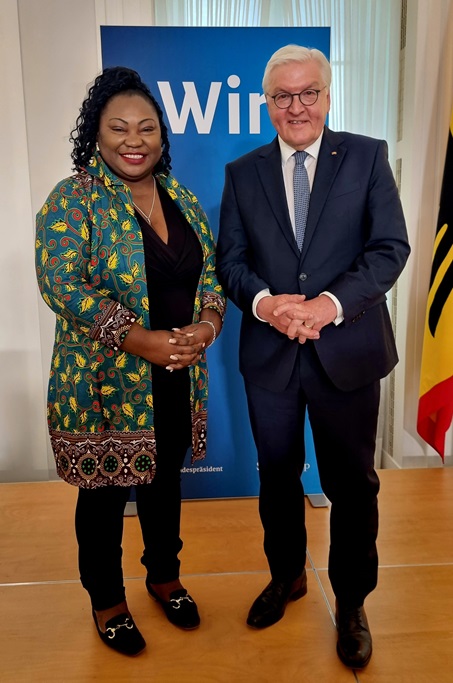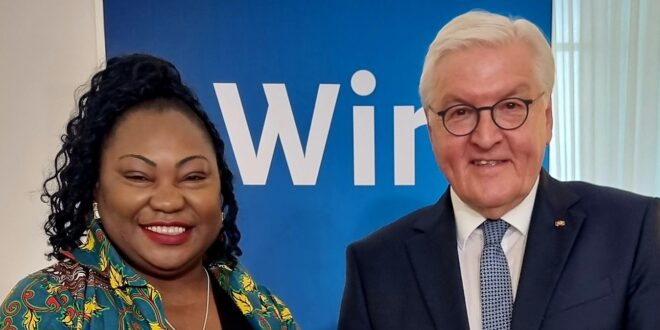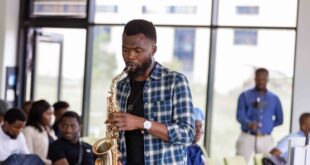On 17 April 2024, President Frank-Walter Steinmeier’s new book entitled “Wir” (We) was presented at Bellevue Palace in Berlin.
In “Wir”, President Steinmeier recalls milestones and experiences that have shaped Germany over the past 75 years. In doing so, he emphasised the efforts of joint action, from which political strength arises.
In his speech at the event, Steinmeier emphasised the importance of unifying institutions in a modern society and recalled the milestones in German history, such as the 75th anniversary of the Basic Law and the 35th anniversary of the fall of the Berlin Wall.
“Where do we come from? Where do we stand? Who are we – and who can we be? The Basic Law was proclaimed 75 years ago and the Berlin Wall fell 35 years ago. The Federal Republic of Germany will be celebrating two anniversaries in 2024 and yet cannot celebrate them with calm complacency. International crises and the tasks of economic transformation are putting our society under stress, trust in politics is suffering and the tone is becoming harsher. And populists are calling liberal democracy into question,” Steinmeier noted.

“This book is a plea in favour of not seeing the state as an enemy in principle. A modern society in particular needs unifying institutions. This is not the state alone, but the state is part of it.”
President discussed his book with with the journalist Nico Fried and the philosopher Susan Neiman as well as with Dr Sylvie Nantcha, Federal Chairperson of The African Network of Germany (TANG), at the event.
Steinmeier called on the parties in government and opposition to be more willing to compromise on migration policy. This is a task for the democratic centre, he said during the moderated discussion. “If the democratic centre of a society does not come together on such issues, then these are opportunities that will be exploited by radical forces in society,” he added.
Ms Nantcha remarked: “For me, it was a special opportunity to represent the voice of TANG and to emphasise the importance of integration, diversity and cohesion in Germany. We must have the courage to say a “we” that does not divide between “us” and “them”, but a “we” that includes all people in Germany. Because the dignity of every human being is inviolable.”
She added: “I would like to thank all our members and supporters who are accompanying us on this journey and helping us to strengthen the voice of the African community in Germany.”
A reviewer describes the book thus: “Steinmeier has summarised his experiences as a politician, particularly as foreign minister, and as head of state in this book. It picks up on social debates and fears, and certainly confirms them. In the end, however, it gives hope.”
In future, “majority” will not refer to ethnicity, religion and culture, Steinmeier writes. “Belonging today is fuelled by other sources, above all by acceptance of the rules that we set ourselves in democratic processes and that guarantee everyone the same conditions for free choice.”
This awareness could give rise to “a new kind of democratic patriotism,” the president opined.
Sola Jolaoso
The book, published by Suhrkamp Verlag, was released on 22 April and can be downloaded free of charge on the official website of the German President.
 THE AFRICAN COURIER. Reporting Africa and its Diaspora! The African Courier is an international magazine published in Germany to report on Africa and the Diaspora African experience. The first issue of the bimonthly magazine appeared on the newsstands on 15 February 1998. The African Courier is a communication forum for European-African political, economic and cultural exchanges, and a voice for Africa in Europe.
THE AFRICAN COURIER. Reporting Africa and its Diaspora! The African Courier is an international magazine published in Germany to report on Africa and the Diaspora African experience. The first issue of the bimonthly magazine appeared on the newsstands on 15 February 1998. The African Courier is a communication forum for European-African political, economic and cultural exchanges, and a voice for Africa in Europe.


































